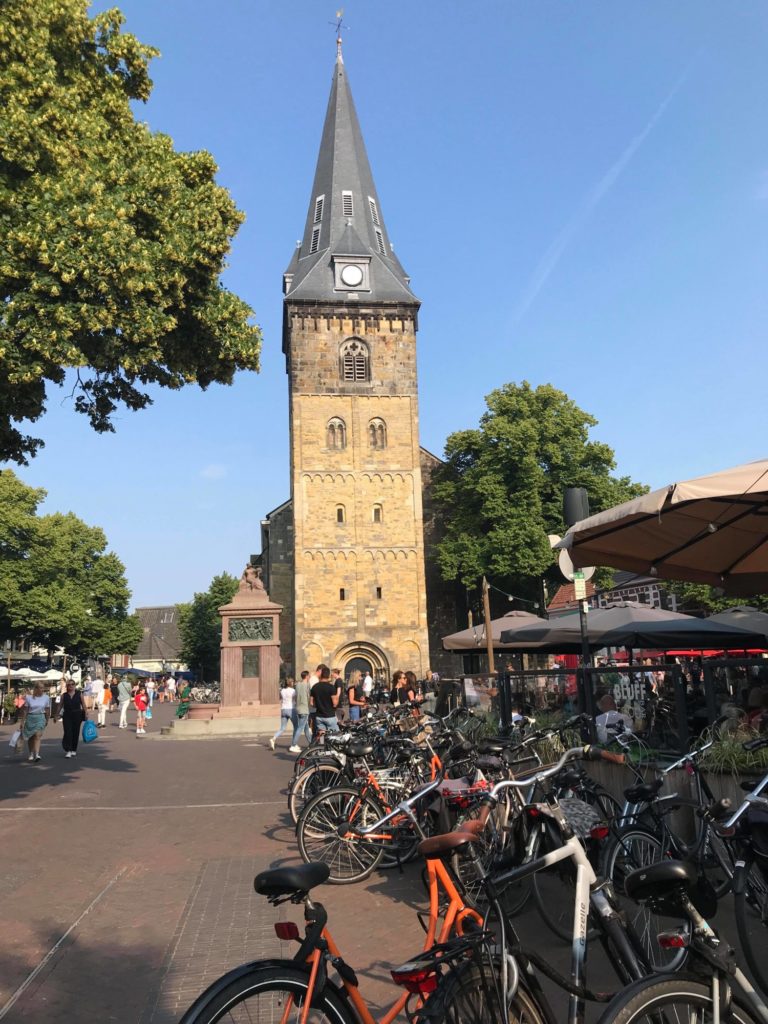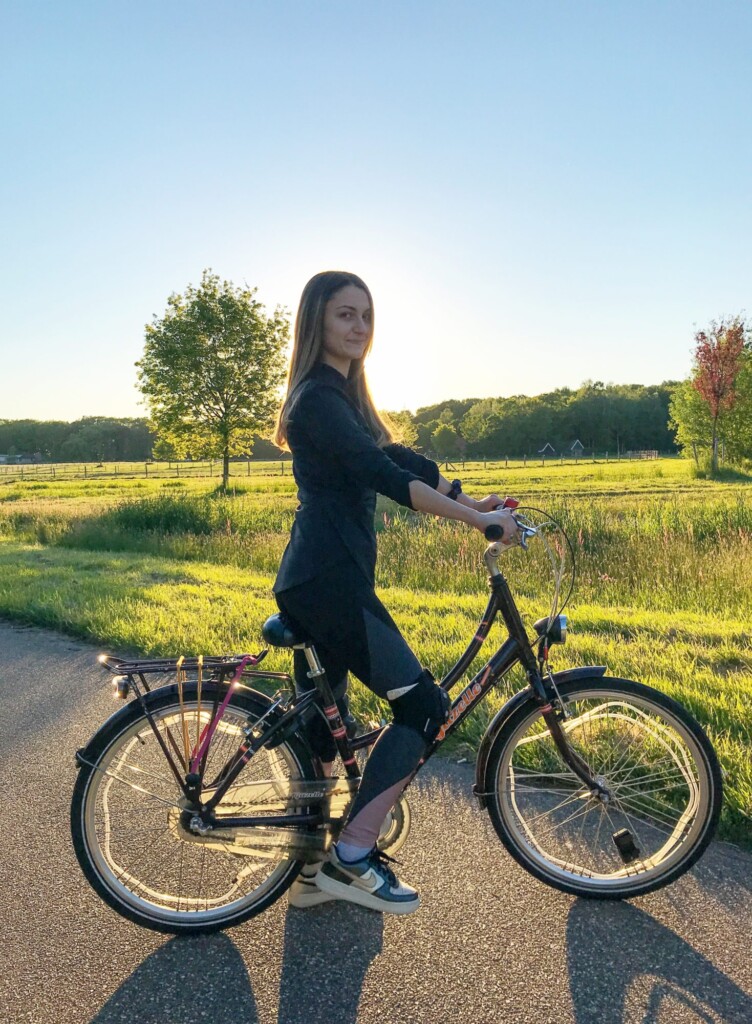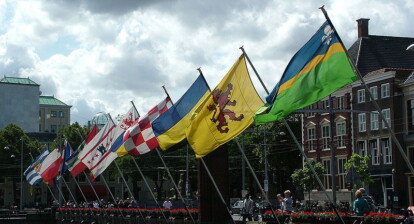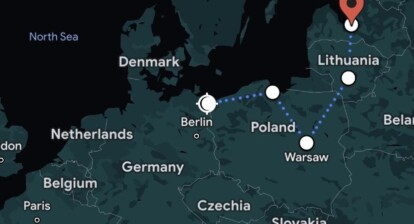Erasmus symbolises the mobility of young people in Europe. Despite a lockdown in many countries due to the global COVID-19 pandemic, a new Erasmus+ programming period was launched in March 2021. Yoanna, a student from Bulgaria, decided to take up the challenge and spend the last semester of her Master’s degree in Enschede, the Netherlands.
A Pandemic and the “New Normal”
The new Erasmus+ programming period is focussing on three key priorities: being more inclusive, digital and green. I have not expected that the meaning of the digital factor would become that central one day and that almost all of my university classes would take place online due to changing circumstances. At the end of 2020, when the COVID-19 pandemic reached another peak, I had to decide whether I would let the uncertainty of the pandemic situation influence my plans for the future. I have always been grateful for my ability to adapt to changes after having lived in several cities as a child and after two experiences in Erasmus youth exchanges. While some people were waiting for this whole situation to pass, I decided to embrace the “new normal” and to accept the unknown. I opted for the Netherlands – the country of origin of Erasmus of Rotterdam. The Netherlands attracted me because of its good reputation of the Dutch education system and the marketing courses available there.
Just a few days after booking my flight and the accommodation in Enschede, the Dutch government announced another full lockdown for a month… and a curfew, and then one more month of lockdown, and one more… Not the perfect case scenario, but I still do not regret my decision to spend the period between January and July 2021 in the Benelux country.
New Opportunities Abroad
COVID-19 affects the way you experience a new country. However, this being my third Erasmus mobility after Worcester, UK and Leuven, Belgium, I can assure that many things can influence your experience. How exactly did the lockdown affect my stay? Crossing national borders was not allowed but fortunately, travelling inside the Netherlands was still possible. Moving from one city to another mainly by train, and getting home before 9 p.m., keeping the curfew in mind was part of my life abroad during the first months of 2021. I could not visit the neighbouring countries or catch a cheap flight from Eindhoven to somewhere else, but that pushed me (in a positive way) to explore more Dutch cities, such as Breda, Tilburg, Deventer, Hengelo, The Hague, Giethoorn, Utrecht, Rotterdam and many more to come until I returned back home.

Saxion University of Applied Sciences, Enschede (Photo: Private)
The Netherlands From Another Perspective
I remember a classmate saying that he had decided to stay in his home country and do the courses online because there was no point to come to the Netherlands to stay in your room due to the pandemic restrictions. Everyone is making their own choices, but being an exchange student during a pandemic is not about constantly staying in your room, it is rather about being conscious and being able to adjust. You have to find things you enjoy other than parties or activities that include meeting many people. My lifesavers during the curfew evenings were the movie nights and pasta dinners with my housemates. During the weekends and afternoons, I enjoyed the parks, the charming small streets, and the historical architecture in the city centre with a small group of friends. We were also allowed to have few guests at home, so small indoor gatherings and sleepovers were a good option.
Another thing you should get used to when you are on exchange during a pandemic (and not only) is travelling in small groups or alone. One day I was just bored and wanted to visit another city. All of my friends were busy, so I just grabbed my bag, my phone and the tripod and headed to the train station ready in Deventer. The advantages: I could do whatever I want, walk or sit as much as I needed, and take as many picture as I preferred. After all, getting to know yourself better is also part of your time abroad – maybe even more in times of a global pandemic.
One Step Closer to the Dutch

Grote Kerk, Enschede (Photo: Private)
Have you ever heard people making the comparison “It’s just like riding a bike”? My reply to that has always been “But I cannot even ride a bike”. I have never fully understood this phrase. The obvious meaning, once you learn it, you never forget it, did not work for me with this example. Not sure where exactly the phrase has come from, but it must have been from the Netherlands. The Dutch people are crazy about cycling and I am sure they learn how to ride a bike before even knowing how to walk.
One of the first things you notice in the Netherlands is that there are bicycle alleys everywhere. Literally EVERYWHERE – in the city, between the cities, around the fields. Moreover, in Enschede you cannot enter the city centre by car or motorcycle, only by bike or on foot, otherwise you risk a fine. Cycling here is not just a sport, nor a hobby – it is part of the culture. The most used unit to measure distance is not kilometre, but minutes by bike. Can you imagine my confusion when I was searching for a room to rent and trying to understand how far a place is from my university or from the centre and the answer always was “Oh, it is just 15 minutes by bike!” I was one of the very few people in Enschede who used the public transport.

My first bike (Photo: Private)
Riding a Bike and Other Learnings
Nevertheless, what a better place to learn how to ride a bike than the Netherlands – the country with the highest number of bicycles per resident in the world. On average, the Dutch own 1.3 bicycles per inhabitant. So I decided to have at least one. And I started my search. In general, it is not hard to find a second-hand bike or to rent one, but as I am quite short (especially compared to the Dutch), it was not an easy task. Eventually, I was lucky enough to find one on my 126th day in the Netherlands. I was feeling like a child on Christmas. I was so excited that I could not wait for somebody to teach me, I just watched a few YouTube videos, I put protectors on my knees, I took the bike and started to walk around the house seating on it, learning how to balance. Well, I did not learn how to ride a bike that day, but my neighbours had some fun for sure. Few days after, a friend gave me a hand and in less than an hour, I was moving the pedals myself. I am still continuing my training in order to become more confident and to stop falling (it happens sometimes to lose control, but that’s how it works in life), but I have an amazing progress. I don’t think that I have been so proud of myself recently! You never know how many new things you can learn during an exchange. Cycling is not that common in my home country Bulgaria due to the lack of a proper cycling infrastructure. Nevertheless, I am already planning to buy a bike upon my return.






